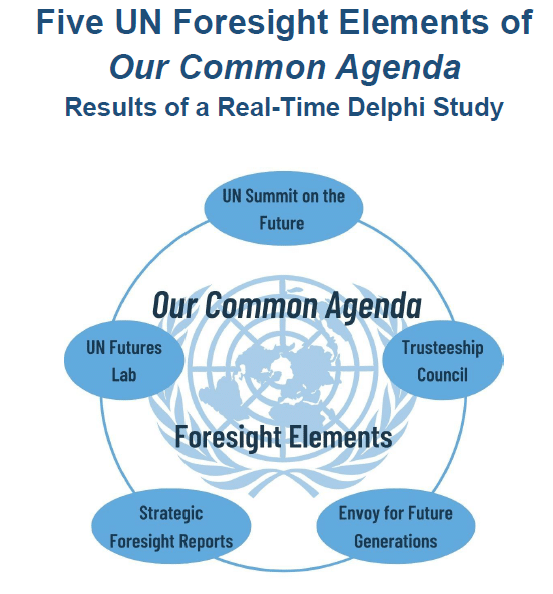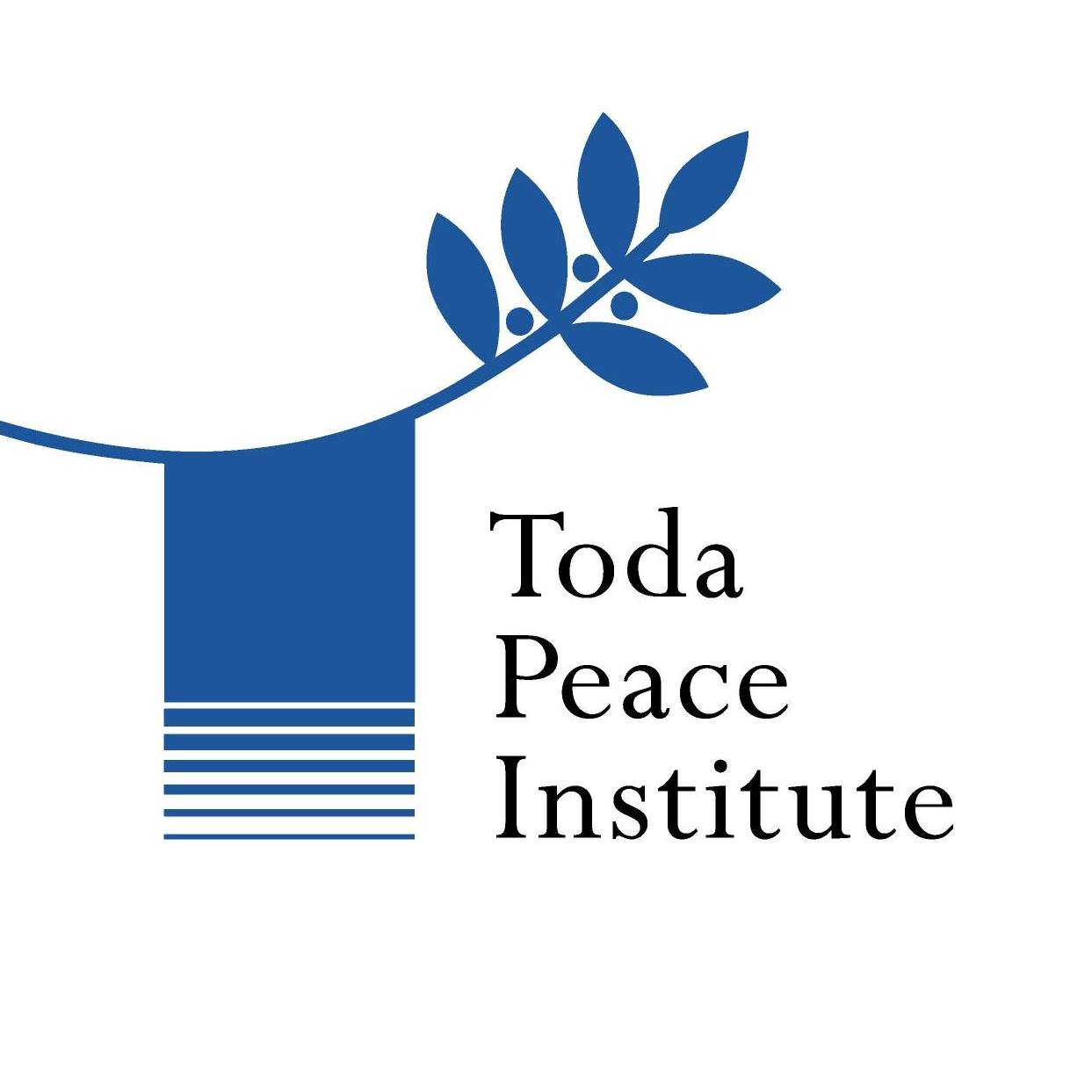Introduction
The present Report introduces five foresight elements of Our Common Agenda. The international foresight community gave these suggestions after a Real-Time Delphi (RTD) study conducted by The Millennium Project. It involved 189 professionals from 54 countries. The study, conducted from May 9, 2022, to July 1, 2022, offered 1463 answers, of which 983 were explanations and comments.
In this sense, the responses to the RTD questionnaire indicated a criticality of each of the five elements strongly endorsed by the global foresight community. The report contains detailed comments on the various aspects of the proposals. For instance, these include the criticality of each component, the factors that would make it successful, and the features that would make it effective.
Recommendations
The UN Futures Lab
According to the Real-Time Delphi panel, the UN Futures Lab is the most critical element of the Five for improving global foresight. The Lab should function as a central hub for all UN agencies and integrate all intelligence and data. Among its possible functions, there are:
- To create a space for comprehensive global futures research.
- To serve as a central hub for monitoring member states’ progress.
- To analyze hundreds of reports annually on the future and various variables and indexes to keep track of the changes happening in the world.
- To allow countries to identify main conclusions and risks and develop effective strategies for addressing these issues.
- To assist them to build their national future capacities.
Moreover, the Report highlights that the lack of a high-level space for foresight and future studies has led to the loss of learning and fragmentation within the UN system. The UN should establish a dedicated futures lab as an online repository for research and new ideas. For this purpose, it should hire experienced professionals from international and national efforts related to future intelligence.
In this regard, the team of the UN Futures Lab should be composed of experts from different fields and disciplines. It must be grounded in sound science while also being able to facilitate collaboration between private and public sectors.
The Summit on the Future
The goal is to bring together global leaders and experts to develop a comprehensive understanding of the future. It will help them make informed decisions and improve their global outlook by producing a more long-term strategy and establishing a framework for addressing the challenges of the 21st century. Hence, The Summit aims to create a pledge of agreement that commits countries to follow the objectives laid out by Our Common Agenda or a Universal Declaration on the Future. Besides discussions about the future, it should also feature side events that allow participants to explore different pathways and scenarios.
The UNSG has the opportunity to release key findings from its foresight surveys and global futures research before the Summit. These studies should be used to inform the decisions taken at the Summit. Also, regional and online pre-Summits should be conducted to identify critical issues affecting the discussions. In addition, a comprehensive online foresight program should be created to allow countries to think about possible futures, threats and opportunities.
Strategic Foresight and Global Risk Reports
These reports should be given the world’s attention to providing actionable insights and recommendations to help improve the efficiency of global organizations. According to the panel, they should also help guide the development of global strategies and provide roadmaps for addressing the various risks and opportunities that the world faces.
In this regard, they should match these requirements:
- It should be issued every two or three years to keep people updated on the latest developments in the field.
- Include a chapter that describes the actions taken since the last report.
- To add the A State of the Future Risk Index.
- Pay attention to the threats that are typically ignored, such as those expected to cost more than the cost of treating a pandemic. These threats should be identified and analyzed to provide actionable insights and recommendations.
- To be updated in real-time to keep people updated on the latest developments in the field.
- To be issued in different formats, such as audio, video, podcasts, virtual reality, and interactive AI simulations.
Overall, these reports should also be beneficial for countries that do not have the necessary foresight and future research capabilities.
Trusteeship Council as a Multi-Stakeholder Foresight Body
The Trusteeship Council is proposed to ” be the permanent arm of the Summit on the Future to enforce action between events, and negotiate with governments on subjects of the future”. According to the Report, it would be the most significant reform in the UN’s structural framework for foresight since the establishment of the UNGA.
The long-term management of global facilities and public goods requires multi-stakeholder collaboration. Therefore, the Council must be composed of multiple stakeholder groups. This system can generate more objective results and promote trust among different groups. Since governments are no longer the main actors in world affairs, having a multi-stakeholder Council is more effective.
Special Envoy for Future Generations
Appointing a Special Representative for Future Generations will signal that long-term thinking and inter-generational solidarity are taken seriously. Moreover, it will act as an umbrella for various youth organizations. Among the main requirements made by the panel:
- Metrics for monitoring intergenerational equity in UN activities.
- The Envoy should be invited to join all UN activities and should be able to challenge all agencies to take into account the various future generations in their programs.
- A Special Envoy for Future Generations per country. This would allow the Envoy to advocate for the future generations in their communities.
- The Envoy should be a prominent and well-known figure in the media, able to strengthen the concept of intergenerational equity.
Conclusion
Although the Five foresight elements were the ones more strongly supported, the full report contains other essential strategies to consider, such as:
- To establish regional UN Offices for Future Studies
- To develop A State of the Future Index with multidimensional indices as an alternative to GDP.
- To install a UN Office of Existential Risks
- To establish a UN Future Compact
Further, in the Distillation of Responses section and the Appendices, more detailed information about the responses given by the Real-Time Delphi panel of experts can be found. For example, the Demographics of the participants, the List of participants and the Real-Time Questionnaire for review. To access the full report, click here.




